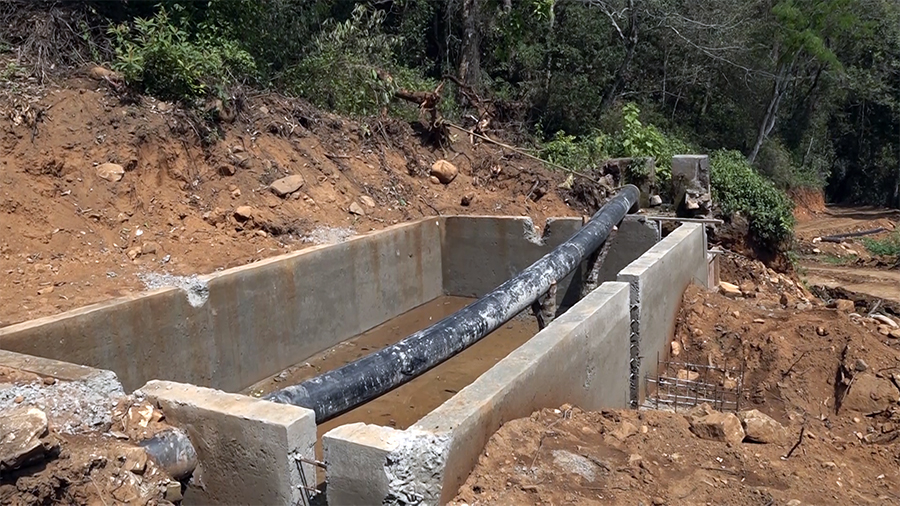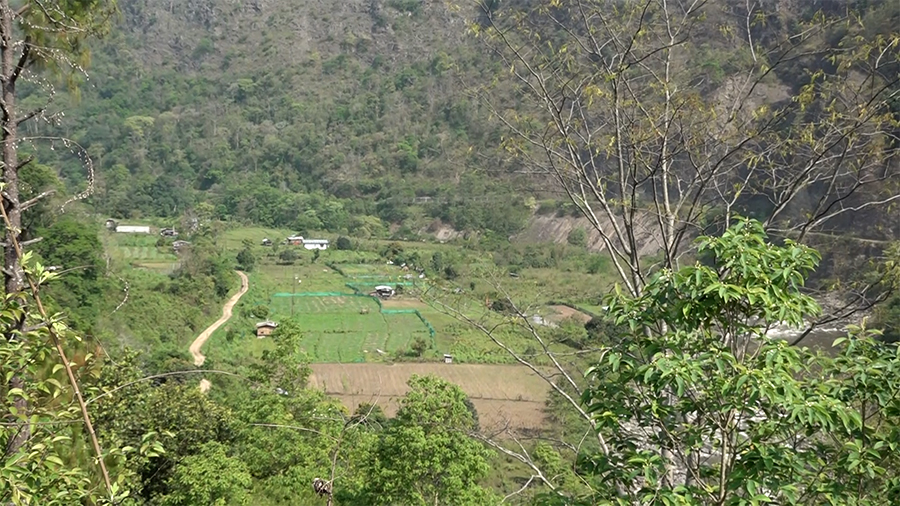
In a promising development for agriculture in Trong Gewog, Zhemgang, farmers in Takabi, Tama, and Berti are set to overcome their struggle with inadequate irrigation water. For years, farmers in Takabi village have been relying on stream water to irrigate their paddy fields, but due to the small size of the stream and the numerous distribution points along the channel, the water shortage has been a constant issue.
 However, a new climate-resilient irrigation channel is nearing completion, and it is expected to provide a permanent solution to their water woes.
However, a new climate-resilient irrigation channel is nearing completion, and it is expected to provide a permanent solution to their water woes.
The four-kilometre-long irrigation channel from Yangdigang to Takabi is almost complete, with construction work having begun early this year. The channel is expected to be ready before the onset of the paddy cultivation season.
Once complete, the irrigation project is set to distribute water to all the fields, providing great relief for the farmers.
“This time, we are told that the water will be distributed to all the fields. It will be a great relief for us with this new irrigation project,” said Mendru, a farmer from Takabi village.
The new irrigation channel, worth Nu 9.8 M, is funded by the Green Climate Fund. It will benefit around 55 households and irrigate over 60 acres of land.
“Takabi has more agricultural land, including wetland, dry land, and cash crops fields. Moreover, the landscape is plain and fertile, suitable for agricultural production. That is why we are providing them with sustainable irrigation water to grow all varieties of crops like turmeric, which is very popular in the market, and farmers can make a good income from it,” said Jambay Ugyen, assistant district agriculture officer in Zhemgang.
The new irrigation project brings hope to the farmers of Takabi and surrounding villages who will now have the necessary resources to boost their agriculture production.
“If this irrigation water construction is successful, it would immensely benefit us. The people of Takabi will be able to increase agriculture production. We have had a severe water shortage, and as a result, we have not been able to boost our production,” said Phento, a farmer from Takabi village.
The irrigation project is not only good news for paddy cultivation but also for boosting local vegetable cultivation.
“Looks like Yangdigangchhu irrigation water is meant for those with paddy fields, but for people like us who have small fields, the irrigation water from the project is going to benefit other crops. It will boost local vegetable cultivation,” said Neten Wangmo, a farmer from Takabi village.
The new irrigation project in Zhemgang’s Trong Gewog brings great relief to farmers who have been struggling with water shortages for years. It provides new hope for increased agricultural production and improved livelihoods for the farmers.
Pema Samdrup, Zhemgang
Edited by Sonam Pem









